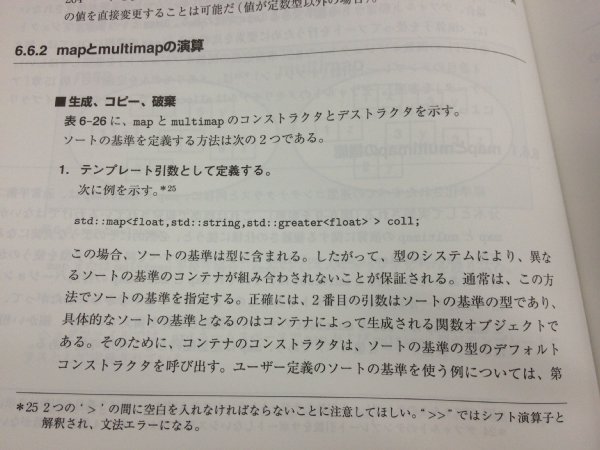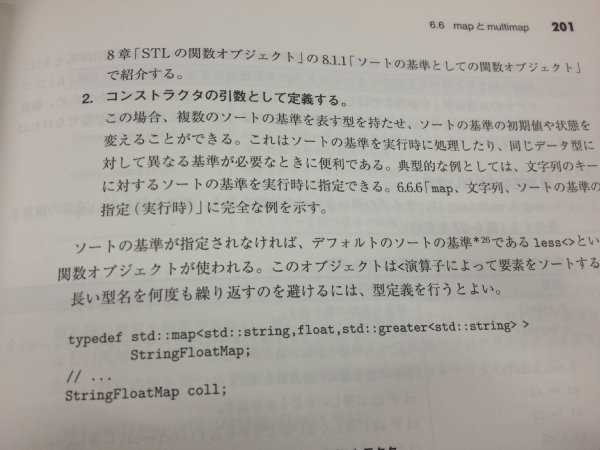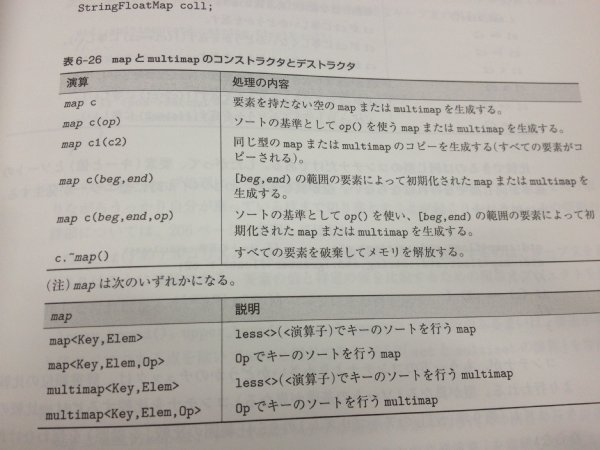実験してみる。
ソースコード。
$ cat stdmaptest.cpp
#include <iostream>
#include <sstream>
#include <string>
#include <map>
std::string int_to_string(int x){
std::stringstream ss;
ss << x;
return ss.str();
}
int main(void){
std::string str = "Hello, Goodbye.";
typedef std::map<std::string, std::string> Props;
Props myprops;
for(int i=0; i<str.size(); i++){
std::string key = str.substr(i, 1);
std::string val = int_to_string(i);
myprops[key] = val;
}
for(Props::iterator i=myprops.begin(); i!=myprops.end(); i++){
std::string key = (*i).first;
std::string val = (*i).second;
char code = key[0];
std::cout << key << "[" << (int)code << "] = " << val << std::endl;
}
return 0;
}
実行結果。
$ g++ stdmaptest.cpp
$ ./a.out
[32] = 6
,[44] = 5
.[46] = 14
G[71] = 7
H[72] = 0
b[98] = 11
d[100] = 10
e[101] = 13
l[108] = 3
o[111] = 9
y[121] = 12
キーが文字列 std::string だと、イテレータがキーの昇順になってるように見える。
ちなみに、今回の環境。
$ uname -mrsv
Darwin 11.4.2 Darwin Kernel Version 11.4.2: Thu Aug 23 16:25:48 PDT 2012; root:xnu-1699.32.7~1/RELEASE_X86_64 x86_64
$ g++ --version
i686-apple-darwin11-llvm-g++-4.2 (GCC) 4.2.1 (Based on Apple Inc. build 5658) (LLVM build 2336.9.00)
Copyright (C) 2007 Free Software Foundation, Inc.
This is free software; see the source for copying conditions. There is NO
warranty; not even for MERCHANTABILITY or FITNESS FOR A PARTICULAR PURPOSE.
手元にある書籍『C++ 標準ライブラリ チュートリアル&リファレンス』で調べてみたら載ってた。キーのソート方法を指定することができる。200~201ページ。



Ref.
- C++ 標準ライブラリ チュートリアル&リファレンス
- Amazon.co.jp: C++標準ライブラリチュートリアル&リファレンス (ASCII Addison Wesley Programming Series): ニコライ・M. ジョスティス, Nicolai M. Josuttis, 吉川 邦夫: 本
tags: cpp
Posted by NI-Lab. (@nilab)


